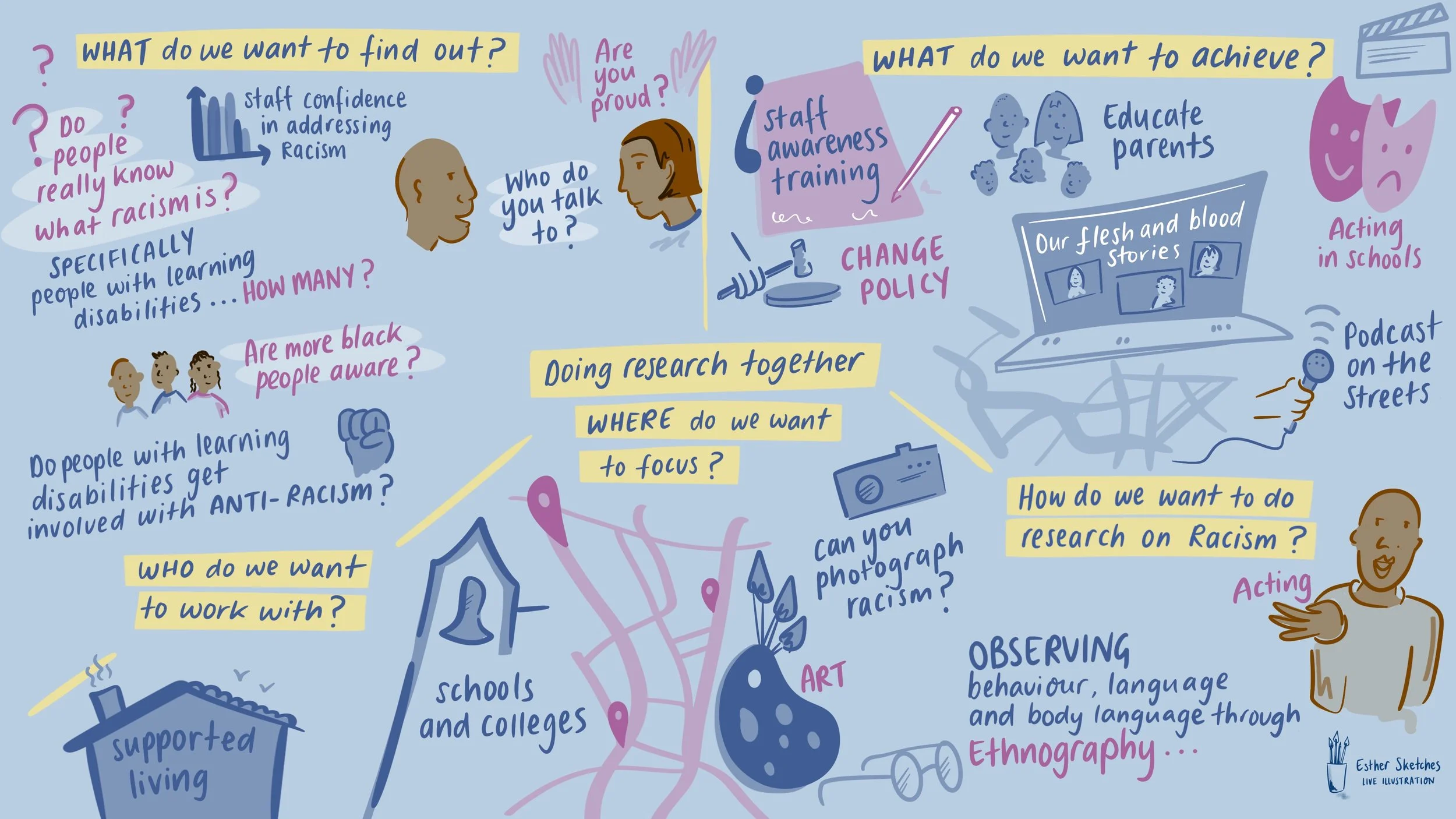Talking about Racism in Learning Disability Services through Forum Theatre and Live Illustration
Earlier this summer, I was contacted by Deborah Chinn, Senior Lecturer in Intellectual Disabilities at King's College London, to embark on the seed of a project called TRILS. TRILS stands for Talking about Racism in Learning Disability Services, a much-needed and under-researched exploration into how racism and ableism intersect in support settings.
Digital live illustration by Esther Springett
To kick things off, we collaborated on a series of scoping workshops bringing together a team of people with lived experience and peer-researchers. Drawing on my experience as a Learning Disability Advocate, I graphic facilitated the sessions, capturing conversations, themes and learning in real time. The workshops offered a rare and powerful opportunity to hear first-hand accounts of how people with learning disabilities experience discrimination.
Digital live illustration by Esther Springett
What came through very clearly is that these weren’t isolated instances, but a pattern across different parts of their lives. Everyone related to each other’s experiences and had an example to share.
Digital live illustration by Esther Springett
We used role play and forum theatre techniques to explore the dynamics of microaggressions, racism, and power imbalances in everyday interactions. These creative methods helped us reflect on subtle but harmful behaviours and unpack how these dynamics play out in different settings.
Digital live illustration by Esther Springett
At the heart of this was a reminder that people with learning disabilities are not, and should not be, defined solely by their diagnosis. We need to see the whole person. Identity is shaped by many aspects, not least cultural identity. Too often, these intersecting identities are ignored in services and research, reducing people to a single label. Participants shared powerful stories that clearly showed how, for example, being black and having a learning disability significantly impacted the way they were treated while simply going about their everyday lives.
“Esther did a fantastic job creating an illustrated record for our university-based event which she also shared as an animation. It was a great way for our diverse participants to review their work and see their achievements. Can’t wait to work with Esther again!”
“We have used your illustrations to review our work and will be incorporating them in our final report.” ”
This project revealed the urgent need to look at these issues through the lens of intersectionality and I’m looking forward to seeing it develop.






